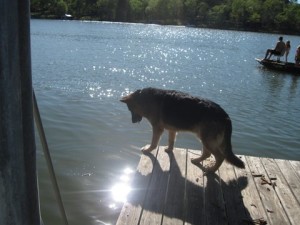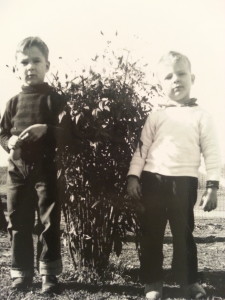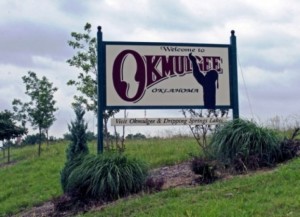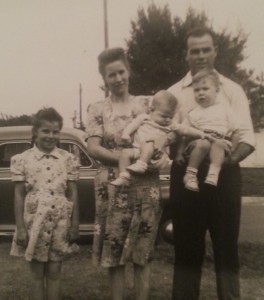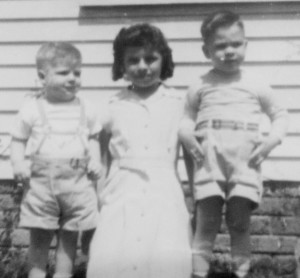You did what? My body, settled in the wheelchair, jumped a little. The doctor’s tone was sharp. He was not pleased.
Who told you to stand up?
It was Monday in what would become my final month at Hillcrest Hospital.
I had been at our Okmulgee home for a rare weekend visit. Sunday afternoon I rested on a living room sofa while mom busied herself in the kitchen.
A thought from nowhere suddenly stirred me.
Try your legs. Stand up. For a few seconds I gazed at my limbs. They hadn’t supported my body for months. What if. . ?
Why not?
I wobbled upward, drawing support from the sofa arm. Once fully upright I leaned against the nearest wall. Steadying myself I called out, Mother. Mother! She released her dish towel and it landed on the floor. Some quick steps from the kitchen and she was with me. She steadied me a little. Then we stood together. Just standing without movement. Upright. My mom and I looked down and took in my spindly legs. Astonished.
Not accustomed to bearing weight, my legs quivered and Mother lowered me again to the sofa. It was then I smiled. Eager to tell the nurses – and the doctor. And Monday came.
Being a youngster, I had been scolded over a generous number of misdeeds before. But never rebuked for trying to walk. Scolded for using my limbs – by a person whose job it was to restore their use? The thought bewildered me.
I saw later that recovery usually requires process. To put weight on my limbs too soon and without proper oversight could hurt – even ruin – any hope for recovery. Inside though, I couldn’t quiet the rush of emotion. I would soon walk. Walk.
Running with Meaning
In the first blog post of this series, Running with Meaning, I spoke of my dad having a limp of sorts – disadvantages in life. Then the idea of California, notions of work there, a place for beginning a family; these possessed his thoughts. Some why not dreams stirred in Clyde Baxter.
Perhaps you are meeting with hardship, illness or work troubles. Relational pain; maybe a personal struggle.
I think it can serve us well to look about (in my instance a new look at a pair of nine-year-old inactive legs). And to look up. Hope comes from a place beyond ourselves. Up.
We revisit Opaline – the angel of a shared affliction – and her narrative soon. Faith marked her journey – differently in some ways than mine. Still with wonder. And surprise.
Why not?
©2015 Jerry Lout


